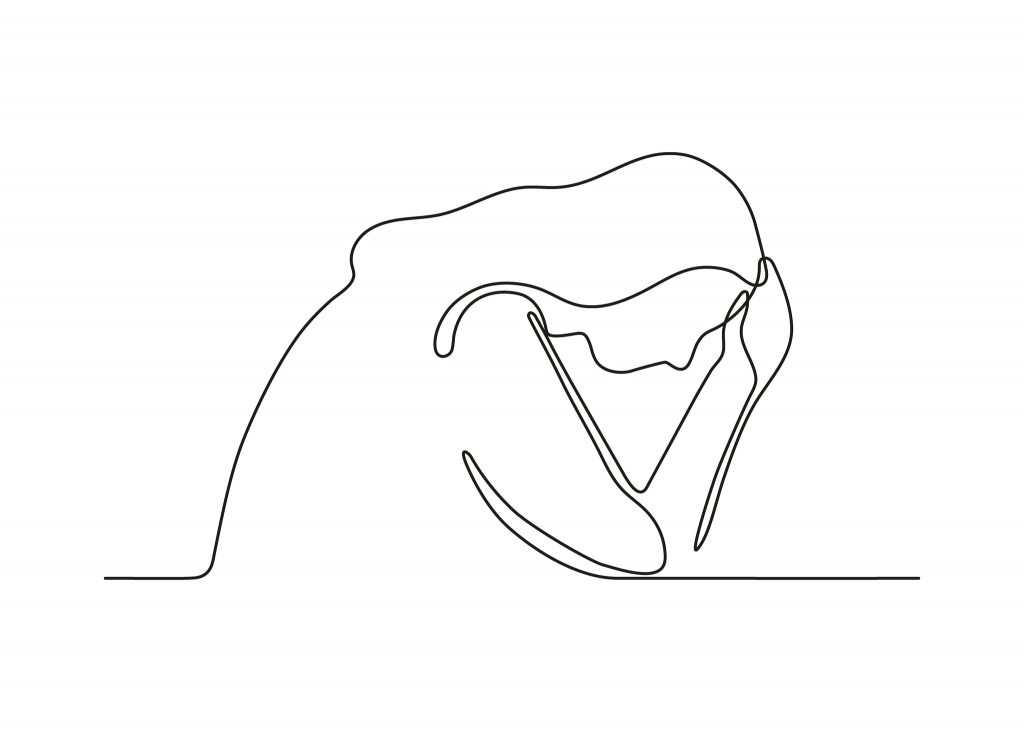
Nervous waiting. It’s the worst —that period of time when we are waiting on an outcome that is going to cause change or bring a disruption. It’s a combination of two things none of us really like: waiting and anxiety. And the worst of it all: it is a part of life. In fact, it shows up in every stage of life, such as when we are waiting on…
… a response from a love note.
… a grade on a test.
… results from a tryout (for a team, a play, a musical ensemble).
… response from a college application.
… hearing back from a job interview.
… results from a diagnostic biopsy.
In my personal experience of all these stages, the stakes are the highest in the waiting of results from medical tests and scans. In fact, I’ve coined a word: scanxiety.
Since nervous waiting is inevitable, it brings up a couple of questions: How can we pass the time? How can we redeem the time? Is there a way to keep scanxiety from being so anxiety-laced? I’ve spent considerable time in Scripture lately trying to find insight on these questions. Here’s what I have so far:
1. Waiting is a virtue.
In fact, it may be on the level of spiritual discipline. Scripture tells us we are blessed when we love, forgive, sacrifice, make peace. We are also blessed when we wait. During the anointing process of Saul (1 Samuel 10) who would become Israel’s first king, the prophet/priest/judge Samuel had given detailed instructions to Saul to solidify his anointing. These instructions included the specific instruction to wait seven days for Samuel to arrive before administering burnt offerings and sacrifice offerings. Saul is not given a reason for the wait. It was simply a step baked into the anointing process. This is a clue to it being a virtuous discipline. So rather than focusing on the importunity of waiting, maybe we can look forward to waiting in the same way we look forward to anything about God that will leave us blessed: worship, meditation, generosity, prayer, exploring Scripture. The next time you are waiting on a call back (from an audition, an interview, a medical test), think of it as an opportunity to explore the virtue of waiting!
2. Waiting is a Gift
When we wait, we grow in ways we may not have otherwise grown. We gain a perspective we would otherwise not have gained. Granted, we’d rather not be in circumstances in which we are waiting on news that could be bad. But since we are in the circumstance, we might as well take advantage of the enhanced perspective caused by the waiting. We see this on display in Acts 17 when Paul was in Athens waiting on his friends to arrive from Berea, a distance of about 190 miles. Paul had been in Berea with Timothy and Silas but was escorted out of Berea and rushed to Athens for safety reasons due to political/religious unrest in Berea. Timothy and Silas remained and were to meet Paul in Athens. Due to the unrest in Berea, Paul had reason to be concerned for the safety of his friends while he awaited their arrival. But rather than stew, Paul took advantage of the time: he reasoned in the synagogue, he debated with the Epicureans, he preached in the Areopogus, and many people became followers. All because Paul leveraged his waiting time. We can do the same thing. Rather than stew over possible worst-case scenarios, we can leverage our waiting time by listening to what God is whispering in our ears, by expressing our fears with friends, by sharing how we’ve seen God’s hand and face as we navigate our anxieties. When we do this, we exercise spiritual and emotional muscles we would not normally exercise, which points us to one of the most famous verses about waiting: Those who wait up on the Lord shall renew their strength (Isaiah 40:31).
3. Waiting is Trusting
The thing about waiting: we have absolutely no control over the length of waiting time nor the outcome. In other words, it’s a a textbook opportunity to practice trust: trusting in God’s presence; trusting in His promises; trusting in hope despite the outcome. After Jesus’ ascension into heaven, the last thing the Apostles wanted to do was stay put. And yet, that’s exactly what Jesus asked them to do in Acts 1:4, “Do not leave Jerusalem, but wait for the gift my Father promised…” They were asked to wait, to trust what Jesus said, that things will be so much better—for them, for the world—if they wait on the gift of the Holy Spirit. We are beneficiaries of their waiting, and their trusting. At times we are put in situations in which the only thing we can do is trust God in the circumstances. This leads us to be reminded of promises we have long forgotten, it prompts us to act on hope–hope that has been in danger of becoming a meaningless cliché.
We may never be able to completely strip the “nervous” out of “nervous waiting.” But my prayer is that the next time you are faced with a potentially nervous waiting situation that you will now have some tools to help tamp the anxiety down and provide some comfort as we all journey through the many stages of life and “scanxiety” opportunities that each stage brings.
Barry Shafer
Founder/Director, InWord Resources